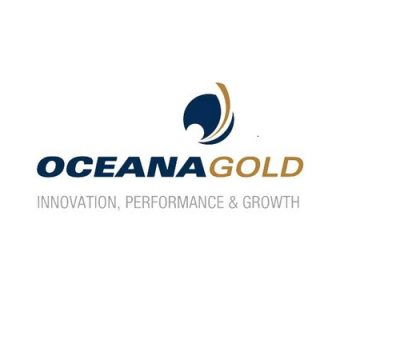Canadian OceanaGold Company Told to leave El Salvador and the Philippines
Shareholders meeting in Toronto

(Toronto/Ottawa) Today, during OceanaGold’s Annual General Meeting (AGM) in Toronto, company shareholders were asked to scrutinize company claims regarding supposed benefits for affected communities in El Salvador and the Philippines.
“It just doesn’t add up. OceanaGold is not acting in the interest of communities in El Salvador when it sues the country for USD $250 million over a mine permit that it has never met the regulatory requirements to obtain,” remarked Rachel Small from the Council of Canadians in Toronto.
A decision is expected shortly over this suit from the World Bank’s International Centre for Settlement of Investment Disputes (ICSID). The case, which has dragged on for seven years, has already cost El Salvador over USD $12 million in legal costs; enough for a year’s worth of adult literacy classes for roughly 330,000 people.
“OceanaGold’s claims don’t compute. The company insists that mining is good for the country, but Salvadorans have been remarkably clear that this is not their desired option for future generations in their densely populated and already water-stressed country,” said Jim Hodgson from the United Church of Canada.
Since 2008, three successive Salvadoran presidents have committed not to issue new mining permits. A 2015 opinion poll found that opposition to metal mining is nearly 79.5% nationwide and 83.9% in municipalities affected by OceanaGold’s El Doradoproject.
“The activities of the company’s El Dorado Foundation in El Salvador do not compensate for the bullying of the last seven years. Worse, this sort of so-called corporate philanthropy could compound social divisions and contribute to further violence against local community activists, as has already taken place,” said Jen Moore of MiningWatch Canada, co-author of a recent report about the activities of the El Dorado Foundation in El Salvador.
Between 2009 and 2011, four environmental activists were murdered in Cabañas, El Salvador. More recently, several local organizations have received threats. These crimes have never been fully investigated.
“It is particularly shameful that OceanaGold is using its experience at the Didipio mine in the Philippines to try to pitch this project to Salvadorans when, based on what we have seen on the ground in Nueva Vizcaya, this project’s legacy is one of community displacement, broken promises, and environmental degradation,” said Connie Sorio for KAIROS: Canadian Ecumenical Justice Initiatives.”
A statement from the Filipino coalition Alyansa Tigil Mina prepared in time for OceanaGold’s AGM stated the demand from local organizations in Nueva Vizcaya that are calling for OceanaGold’s operations to stop and for their lands to be rehabilitated, given impacts on water supplies and farmlands. The Incoming Governor of Nueva Vizcaya, Carlos M. Padilla, also issued an open letter reiterating the call for OceanaGold to pull out, emphasizing how the costs of the company’s open-pit mine far outweigh scarce benefits.
Contacts:
- ·Jim Hodgson, United Church of Canada, [email protected], 416-231-5931 x4013
- ·Jen Moore, MiningWatch Canada, [email protected], 613-569-3439
- ·Rachel Small, Council of Canadians, [email protected],647-769-2472
- ·Connie Sorio, KAIROS: Canadian Ecumenical Justice Initiatives, [email protected], 416-463-5312 x24

